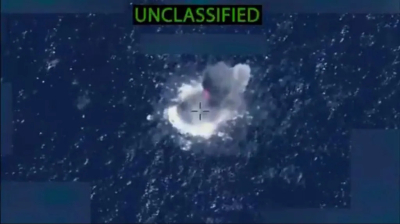India will no longer allow its water to flow across international borders, Prime Minister Narendra Modi announced May 6, signalling a dramatic policy shift that experts say could have far-reaching consequences in South Asia, the BBC reports.
“Now, India's water will flow for India's benefit, it will be conserved for India's benefit, and it will be used for India's progress,” Modi said during a public address. He did not name neighbouring Pakistan directly, but the timing of the statement comes just two weeks after New Delhi suspended the Indus Waters Treaty – a landmark water-sharing agreement with Islamabad in place since 1960.
The treaty, brokered by the World Bank, has governed the use of six rivers shared by the two countries, granting India control over the eastern rivers and Pakistan rights to the western ones. Despite two wars and multiple skirmishes, the pact has long been viewed as a rare example of sustained cooperation between the nuclear-armed neighbours.
Pakistan has previously warned that any move to unilaterally block water could be considered “an act of war.” Roughly 80% of Pakistani farmland depends on water flowing from Indian territory, making it a critical lifeline for millions of farmers, the BBC continues.
Modi's declaration follows a deadly militant attack last month on tourists in Indian-administered Kashmir, which left 26 dead. New Delhi blames Pakistan-based groups for orchestrating the assault, after terrorist groups in Pakistan claimed responsibility. It is a charge Islamabad strongly denies, but one few in India put little faith in.
As part of a broader crackdown on what it calls “cross-border terrorism,” India has withdrawn from several bilateral agreements, including the decades-old water treaty.
The prime minister has yet to detail how India plans to utilise the water that will be retained. Experts caution that storing and managing the redirected flow would require large-scale infrastructure, including dams and reservoirs – projects that could take years to implement.
India’s move now marks a significant turning point in one of the world’s most volatile regions, with water – the most fundamental of resources – now squarely at the centre of an escalating geopolitical conflict.
News

Russia tests nuclear-powered Poseidon torpedo, Putin says
Speaking during a hospital visit with soldiers wounded in Ukraine, Putin said the device was launched from a submarine and that its onboard nuclear power unit had been successfully activated.

Serbian students march to Novi Sad for anniversary protest
Hundreds of students from across Serbia are marching on foot to the northern city of Novi Sad ahead of a November 1 commemoration marking one year since the collapse of a railway station canopy that killed 16 people.

Tanzania election protests trigger curfew; military deployed, internet cut
Demonstrators clashed with security forces in Dar es Salaam, setting a bus and a gas station ablaze, prompting authorities to impose a curfew from 6 p.m. The military was deployed in Dodoma, Zanzibar, and the commercial capital.

US strikes on drug vessels kill 14 in deadliest day of Trump's narcotics campaign
The US military killed 14 people in strikes on four vessels allegedly transporting narcotics in the eastern Pacific Ocean, marking the deadliest single day since President Donald Trump began his controversial campaign against drug trafficking.




